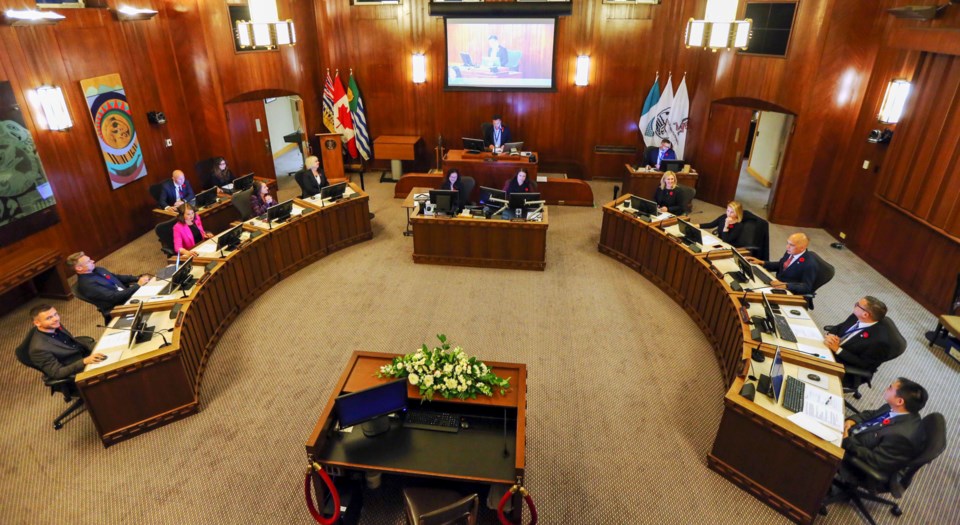Vancouver council did as expected Tuesday (Dec. 6) and deferred a decision on the city’s $1.9 billion operating budget until the spring while approving a capital budget and utility and engineering fee hikes for 2023.
The ABC Vancouver majority had signalled since elected Oct. 15 that it would push debate on the operating budget to the new year to give council time to digest the number-heavy document, which is typically passed in December.
Of the 11 members on council, five are rookies from ABC, including Mayor Ken Sim, who told reporters after the meeting that his party’s commitment during the election campaign was to be “thoughtful” in how it balanced the budget.
“We're going to go through it with a fine tooth comb and make sure it reflects the desires and the wishes of Vancouverites,” said Sim, whose party campaigned on hiring 100 police officers and 100 mental health nurses.
Decision expected in March
Meanwhile, all departments will continue to operate into the new year with what city finance staff described as a “current state” or interim budget until council finalizes the budget for 2023. That will likely occur in the first week of March.
As governed by the Vancouver Charter, council must have a budget in place no later than April 30, 2023. The $1.9-billion draft budget is an increase of 9.5 per cent or $166 million from the 2022 budget.
A property tax hike of five per cent would be required to balance the budget, which includes the police department’s proposed $383 million operating budget.
Fire Chief Karen Fry also wants council to spend $6.9 million to hire 40 firefighters and 15 staff, including six fire inspectors and four safety officers.
Sim wouldn’t speculate on whether council will hold to a five per cent property tax hike.
“We're not committing to any number right now because we're still making decisions along the way,” he said.
Utility rates expected to increase average of 10 per cent to 2027
In 2023, water rates will increase by three per cent, sewer rates by 15 per cent and solid waste by 5.9 per cent. Neighbourhood energy utility rates for False Creek will increase by 3.2 per cent.
A staff report said overall utility rates are expected to increase an average of 10 per cent annually through to 2027, driven primarily by forecasted increases in regional utility charges from Metro Vancouver and investments in infrastructure renewal.
The multi-year capital budgets approved includes $580.8 million for new projects and $730 million for project costs in 2023. Approval by council was based on staff’s warning what a delay to unlock funds would mean for projects.
“The 2023 capital budget includes allocations or continued spending on capital projects from prior capital plans that have been previously approved, and any material delay in approving the continued funding of these capital projects could delay or stop these projects which in the current inflationary environment would very likely result in material increases in costs,” a staff report said.
“There is also the risk for all capital projects partially funded by external funding partners that any delay results in a loss or reduction in external partner funding.”
Granville Bridge Connector
About $460 million will be spent on ongoing initiatives, including land acquisition for social and supportive housing, ongoing replacement of the city fleet, maintenance and renovations of city infrastructure.
One-time projects in progress and to be completed in the 2023-2026 capital plan period totals about $450 million. Projects include the Marpole-Oakridge Community Centre renewal and expansion, the Granville Bridge Connector and the Grandview fire hall renewal and expansion.
One-time projects that are in progress and will require additional funding during the 2023-2026 capital plan totals about $60 million.
Projects include the RayCam Co-operative Centre renewal and expansion, Burrard Slopes Park expansion and Vancouver Animal Control Centre renewal and expansion.
@Howellings



